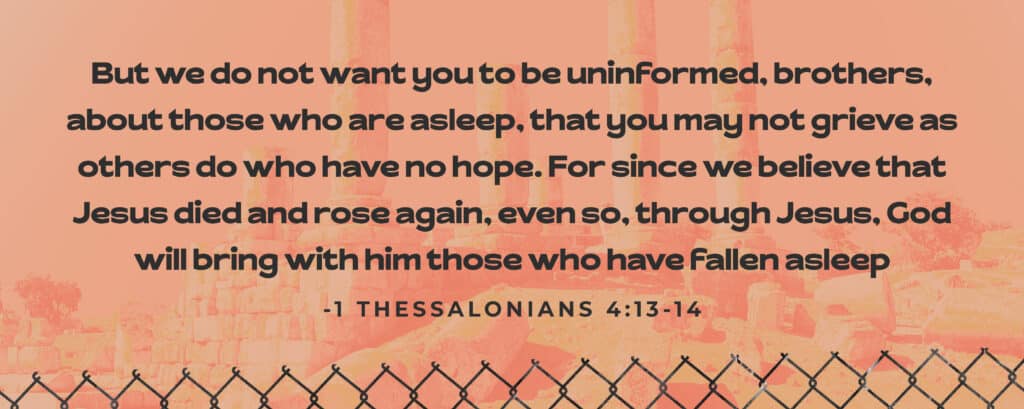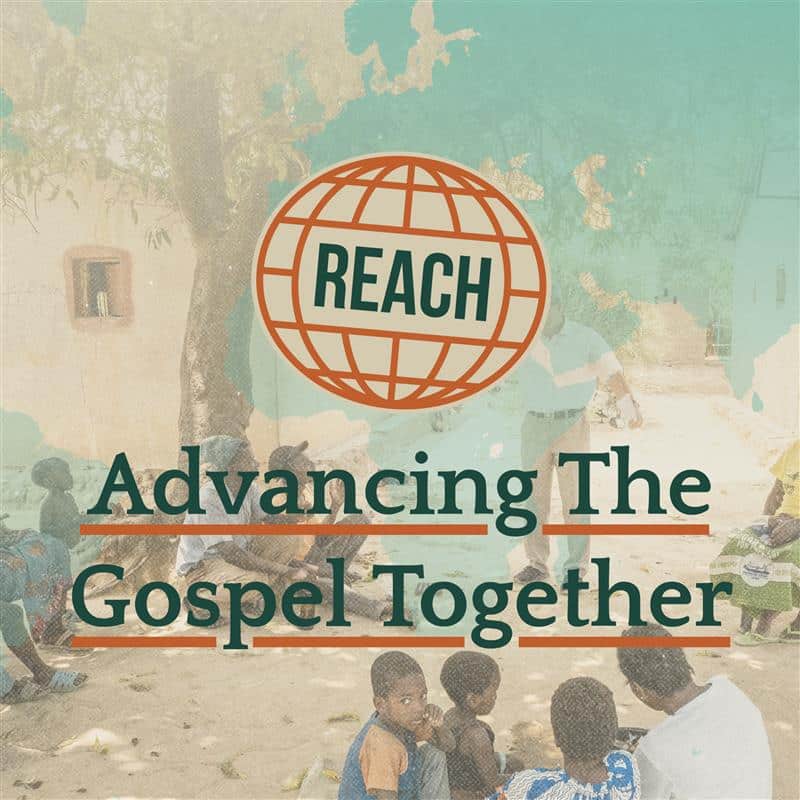What Happens When We Die?
May 8, 2023
One of the euphemisms for death is to say someone has “passed beyond the veil.” The idea being that there’s a veil between us now and what happens after death. We can’t see through this veil; we can’t see around this veil; it blocks us from the knowledge of what happens after we die.
And because there is so little knowledge about what happens to us after we die, there are all sorts of cultural intrigue around this question. Just a few years ago, there was a book publishing fad related to stories of people dying, experiencing the afterlife, and then soon-there-after coming back to life to recount their experience. The most famous of these books was Heaven is For Real, but there were dozens of others that followed. And you can also think about TV shows like NBC’s The Good Place or movies like Disney’s Soul. Each of these were recent hits and very popular, in large part because they drew upon our instinctive interest in what happens after die. We all want to know, because we’re all ignorant, and we’re all going to die.
In the Book of Thessalonians, the Apostle Paul is writing to the church in a city called Thessalonica. Paul had helped plant the church there, and now through this letter he’s writing back to the church in order to address further concerns that they had. And one of those concerns related to what happens after we die. So, Paul is going to offer further instruction related to the resurrection and how it impacts our lives today.

1 Thessalonians 4:13–14 But we do not want you to be uninformed, brothers, about those who are asleep, that you may not grieve as others do who have no hope. For since we believe that Jesus died and rose again, even so, through Jesus, God will bring with him those who have fallen asleep. (ESV)
As we work our way through these verses we’re simply asking, how does the final resurrection impact our lives today? In other words, how should we respond to the truth of the future resurrection? Here, Paul teaches us that we can Grieve with hope — a concept the church at Thessalonica was struggling to grasp.
The Thessalonians’ ignorance about their fellow Christians who had died (or had fallen asleep) led them to grieve in the same way as non-believers grieve. The way Paul puts it is that they are grieving in the same way as those “who have no hope.” In other words, as followers of Christ, they were grieving the deaths of fellow believers in the same way that people who don’t follow Christ grieve the death of their loved ones. Paul’s logic is that we as believers in Jesus have hope beyond even death, and unbelievers don’t have hope beyond death. So why are we grieving death in the same way that they are?
Let me put this in terms that relate to my wintertime experience here in Michigan. For me there are two types of Michigan winters. (1) There are the Michigan winters when I have a vacation planned to Florida in February or March, and (2) there are the Michigan winters when I do not have a vacation planned to Florida in February or March. And these two types of winter experiences (for me) are worlds apart. For the first one, I have hope. Even though the dark, cold, bitter January days pass by painfully slowly, I have hope, because I know, that pretty soon I’m leaving on a jet plane, and I’m going to Ft. Myers; and then I’m driving further south to Marco Island. And for a week or so I’m going to soak up all the sun and heat and natural light that I possibly can.
But for the second one, for the second type of winter, I have no hope. No vacation, no sunshine state, no swimsuits, there’s nothing on the horizon to look forward to. It’s just dark and cold and sad. Vitamin D pills, blue light therapy, none of it works.
Paul is sharing with the Thessalonians, You (like C.T. in winter scenario #1) have something to look forward to. You have hope. And that should impact the way you grieve the death of your fellow Christians.
1 Thessalonians 2:14 For you, brothers, became imitators of the churches of God in Christ Jesus that are in Judea. For you suffered the same things from your own countrymen as they did from the Jews, (ESV)
My wintertime hope is based on a plane ticket and hotel reservations, but Christian hope is based in something altogether different. Our hope beyond death is rooted in our belief that Jesus died and rose again. And more than that, God will also bring with Jesus those who have fallen asleep.
So, Paul here is pointing to the truth that when we trust in Christ, we are united to Christ; we are “in Christ,” as Paul so often puts it. But we’re not just united to Christ generally speaking; we are united to Christ specifically in his death and in his resurrection. His death counts as our death, and his resurrection guarantees our future resurrection. In Romans 6:4–5, Paul puts it this way, “We were buried therefore with Him…in order that, just as Christ was raised from the dead by the glory of the Father, we too might walk in newness of life. 5 For if we have been united with Him in a death like his, we shall certainly be united with Him in a resurrection like his.”
So, our hope is not as flimsy as vacation plans. Our hope is as certain as Jesus’ grave is empty. He rose from death, and so God will raise us with Him.
Yes, we grieve. When our brothers and sisters in Christ die, we do grieve their death. We grieve the brokenness of their bodies; we grieve the pain they experienced mentally and physically; we grieve for ourselves, because we will miss them. For some Christians, there’s this thought that we need to be as stoically emotionless as possible in life and in death. As if we can cast away all feelings and have complete indifference to the troubles of life.[1] But that’s not what Paul is saying. He’s not saying, I don’t want you to grieve. He’s saying, I don’t want you to grieve as those who have no hope.
Christian, you have hope, and that hope is Christ, that He died and rose on your behalf, and that you too will one day rise with Him. And your brothers and sisters in Christ who die, they too will one day rise with Him. Let’s grieve death, as those who have hope beyond death.

